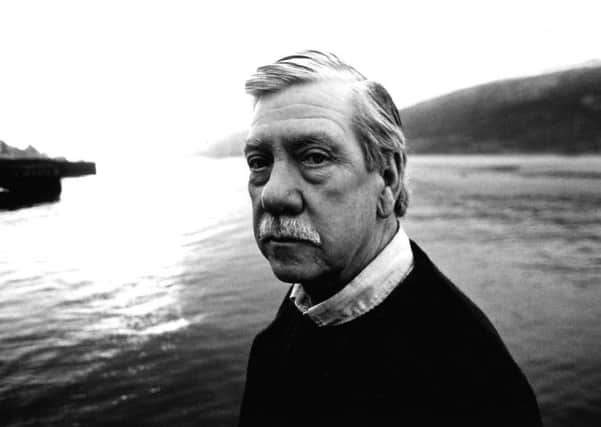Food pioneer Derek Cooper dies at 88


Cooper was also a broadcaster best known for founding and presenting the Food Programme on BBC Radio Four.
The journalist, who wrote numerous books celebrating Scots culture – particularly the Isle of Skye where he made his home – had suffered with Parkinson’s disease for more than 20 years. He was understood to have been living in a care home in Twickenham in recent years.
Advertisement
Hide AdAdvertisement
Hide AdFormer colleagues and fans yesterday paid tribute to the food expert, who was in 2001 given a Sony Radio Academy Special Award for “his pioneering work as one of the first journalists to take the subject of food seriously”.
The Food Programme was – and still is – known for investigating food issues on behalf of the consumer.
“Sad to announce the journalist and broadcaster Derek Cooper has died,” tweeted the Food Programme, adding that Cooper had been “a man who reintroduced a nation to its food culture”.
Radio Four journalist Susan Rae added: “I will raise a glass of the Balvenie to the great Derek Cooper, who has died,” while restaurant reviewer and food author Joanna Blythman remembered him as an “inspirational broadcaster and warm-hearted human being”.
Comedian Hardeep Singh Kohli added: “Derek Cooper. The comforting voice of a generation. RIP.” Cooper’s broadcasting career began at Radio Malaya in 1950.
He also worked at ITN before becoming a familiar voice of BBC radio and television shows, where he worked on programmes including Tomorrow’s World – he was involved in launching the first programme – Today and You And Yours.
He was a food writer for Scotland on Sunday from the early 1990s and wrote a column in the newspaper’s Spectrum magazine, initially called the Food Column and later changed to Stirring It, until 1998.
John Forsyth, broadcaster and former political editor of Scotland on Sunday, recalled Cooper’s “self-deprecating humour” and “graciousness in sharing his knowledge” with younger reporters.
Advertisement
Hide AdAdvertisement
Hide Ad“Derek was a generous colleague and amid all the banter and anecdote taught me a great deal about radiocraft,” he said. “His voice was his fortune in many ways but there was much more to his character.
“He was quite political in his belief that good, unadulterated food is an entitlement, not a fad. His boast was that his own culinary skills stopped at cheese straws – but what cheese straws.”
He added: “He had an individual socialism intertwined with his love of Scotland in general and Skye in particular.”
Food critic Jay Rayner said: “Farewell to Derek Cooper: a superb broadcaster, but more importantly a standard bearer for a robust, questioning tradition of food journalism.”
Sheila Dillon, who has presented the Food Programme for more than 20 years, said: “He realised before anyone else that the way we cook, shop and grow food shapes the way our world is.”
She added: “He had the best voice on radio. If I queried a line in his script he’d say, ‘Don’t worry, wait till we get the golden tones on it.’”
Cooper, who attended Portree High School on Skye and later graduated from Oxford University, was also the first chairman and president of the Guild of Food Writers. Since 2002, the Guild has given out the Derek Cooper Award for campaigning and investigative food writing and broadcasting.
A prolific author, he published more than a dozen books during his illustrious career, including titles such as the Little Book Of Scotch Whiskies and Skye.
Advertisement
Hide AdAdvertisement
Hide AdFour years ago, he donated his working library of books, most of them dedicated to food, whisky and islands culture to the Islands Book Trust on Lewis. He was born in London but spent most of his childhood living in the Scottish islands.
Cooper was awarded an honorary degree from Queen Margaret University College, Edinburgh, in 1999.